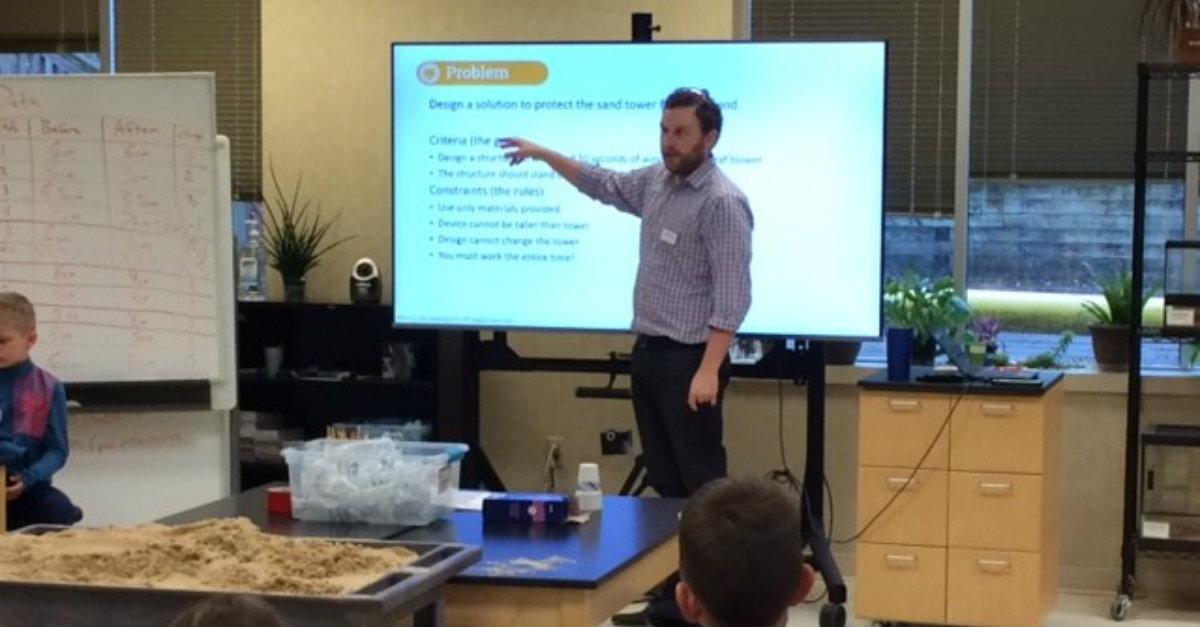Teachers are being driven out of the classroom. Ever since 2012, teacher turnover has been skyrocketing. Half of all teachers leave the profession within five years. Schools are scrambling to find staff. Millions of students are taught by substitute teachers–when schools can even find them.
Whatever can we do? The most obvious solution is to pay teachers more. This would help; in terms of attracting and retaining teachers, market incentives work. However, a mounting body of evidence suggests that low pay accounts for only a fraction of teacher dissatisfaction. Consider the causes of teacher dissatisfaction. According to American Federation of Teachers’ Quality of Worklife survey, only 46% of teachers cited pay as a major source of stress. In contrast, 55% reported stress from negative portrayals of teachers. An eye-catching 71% cited top-down initiatives required by their administration.
Exodus
According to widely-accepted theories about human motivation, this makes perfect sense. Teacher motivation is, largely and thankfully, intrinsic; most parents would prefer their children be taught by a person who really loves the job, rather than a hired gun chasing financial carrots. Beyond parent preference, research from MIT suggests that increasing extrinsic incentives only improves performance if tasks are simple and straightforward—and if you think teaching is simple and straightforward, you should probably stop reading right now.
Intrinsic motivation is powered by three things: purpose, mastery, and autonomy. Helping teachers develop a sense of purpose is the easy part. We wake up every day with a chance to touch lives and change the world. But the Quality of Worklife survey points to what a terrible job our society has done providing teachers with a sense of mastery and autonomy. If you’re a principal, superintendent, school board member, or just someone who cares about teacher motivation, here are the two most powerful ways to increase it.
Mastery
Part of the problem is that teaching is unmasterable because education can produce a plethora of different good outcomes, and reasonable people disagree about their relative importance. However, honest expressions of appreciation and respect make teachers feel their contributions are valued and increase their sense of mastery. Feeling valued can make all the difference.
Beyond that, teachers need adequate support to do their jobs well. Schools are very resource-limited environments, but when school leaders conscientiously strive to provide teachers with time for planning and reflection, as well as research-based professional development opportunities, educators appreciate the opportunity to improve their practice.
Autonomy
Increasing teachers’ experience of mastery is critical to their motivation. However, educators’ top frustrations involved autonomy. The state mandates testing. Administration implements top-down initiatives. Teacher opinion either is not solicited or is ignored. Society works so hard to standardize student experience that we mechanize it, stifling teacher creativity. This has disastrous consequences for teacher motivation.
What can we do?
First, school leaders need to recognize that teacher buy-in is critical to student success, and that affording teachers freedom cultivates buy-in: freedom to make curricular decisions, to be different, freedom to innovate. So establish a culture of collaboration, trust, and encouragement. Engage in shared decision-making. Listen to your staff and act on their wisdom. You’ll cultivate passionate teachers teachers by promoting autonomy.
Teachers Driving Decisions
I recently helped develop a ground-breaking series of purpose-based learning experiences. These projects provide teachers with the supports they need to teach challenge-driven, cross-curricular projects that make the world a better place. They’re an incredible resource I believe in strongly. But one of the most impressive things about the endeavor is that, because we’re a nonprofit organization, we aren’t trying to maximize sales by talking exclusively with administrators. We’re going straight to teachers—the myriad of teachers who want to create learning experiences that empower their students to change the world. We’re finding the vanguard of an educational movement—a bottom-up, grassroots demand for this type of important and powerful learning.
As we talk with teachers around the country, we know there are thousands of them who want this type of resource for their students, and we want that demand to drive administrative decisions. So teachers, if you’re interested in a Blue Apple project, talk with your administrator today. And administrators, we hope this can be an opportunity for you to be the hero—to recognize the wisdom of your teachers and to provide them with the autonomy to be a teacher who stands out—a teacher who students will remember forever.

